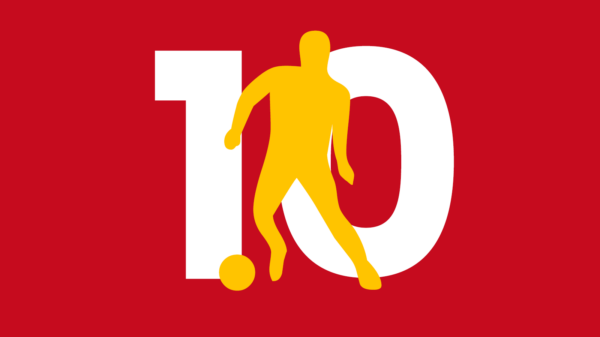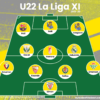A man’s love for a city and a sport created the iconic club we know today, Wasi Manazir tells us more.
When Joan Gamper made a stoppage in Barcelona to meet his uncle on his way to try his hands in sugar trading business in Africa little did he know that he would end up founding one of the colossus of European football whose impact would be much beyond the realms of football and in time will symbolize hope and aspirations of a population reeling under the tyranny of oppression.

Born Hans Kamper in 1877 at Winterthur, Switzerland he led a life full of accomplishments which included founding two of the biggest clubs in his native Switzerland – FC Basel and FC Zurich, he went on to become the captain of RotBlau before he turned 20. In an age when all sport were played by amateurs and making money from what was for all intents and purposes a leisure activity was out of the question, Hans Kamper set out for Africa like so many Europeans of his time to make a living out of sugar trading business. He made a detour in Barcelona to meet his uncle, but fell in love with the city and never made it to Africa. His love for Catalonia led him to learn Catalan before he learnt Spanish and later changed his name to a more Catalan sounding, Joan Gamper.
Gamper’s love for the game saw him place an advertisement on 22nd October 1899, in Los Deportes declaring his wish to form a football club; a positive response resulted in a meeting at the Gimnasio Solé on 29th November. Eleven players hailing from the local area, greater Spain, England and Switzerland responded to Gamper’s call and thus FC Barcelona was born. The attendees of the first meeting took playing as well as management duties at the club; Englishman Walter Wild was appointed the club’s first president. Perhaps, as homage to Gamper’s hometown club FC Basel’s red and blue were chosen as the Catalan club’s colors.
Gamper took the leadership duties on the pitch and started scoring goals at such rate that it would put all the modern masters to shame. In a prolific career he scored 120 goals in a mere 51 matches, his on field skills and charisma saw him gaining fame across Catalonia. In 1900-01 he was part of the team that won it’s very first trophy, the Copa Macaya, he also participated in Copa de la Coronación; what is considered as the precursor of Copa del Rey.
Within a decade of it’s founding the going got tough for the club; with finances in a mess there was a high likelihood of the club folding up in it’s infancy. The team’s on field performances suffered too and they went four years without a trophy. It was all too much for Gamper to bear and he couldn’t see his dream unravel before himself. Taking matters into his hands he became the club president for the first time in 1908 at the age of 31, and held the presidency for 5 terms over the period of next 15 years. With Gamper at the helm, success soon followed and the club made rapid strides both on and off the field. In 1909 the club was in a position to move to its own field for the first time in its history, the 6000 capacity Carrer Industria.
Gamper’s keen eye saw him sign a fifteen year old prodigy Paulino Alcántara, the man who went on to become Barcelona’s all time leading goal scorer until Messi made that record his own. In 1917 he brought in Englishman Jack Greenwell as manager, along with Alcántara they signed players of the caliber of Ricardo Zamora, Josep Samitier, Félix Sesúmaga and Franz Platko who went onto become club legends. During this period Barcelona won eleven Championat de Catalunya, six Copa del Rey trophies and four Coupe de Pyrenées, thus enjoying its first golden age. With success came increase in club membership and revenues, and as a result in 1922 the club moved to Les Corts, the stadium the club called home for the next 35 years.
Along with the rise and success of this Catalan symbol, the political scene was changing quite dramatically in Spain. During a match at Les Corts on 24th June 1925, Catalan supporters, in a show of defiance to the dictatorship of Primo de Rivera jeered the Spanish national anthem and then applauded “God Save the Queen” performed by a visiting British Royal Marine band. It didn’t go down well with the reigning dictator who accused Gamper of promoting Catalan nationalism and forced him into exile, to compound his misery he ordered Les Corts shut for six months.As a condition of Gamper’s return he was forced to avoid all contacts with the club.
This was the beginning of a downward spiral for Gamper, the depression he was in due to being forced away from his club was compounded by the global economic collapse of 1929 which destroyed his business. This was all too much for him to bear, a year later he committed suicide. It’s quite an eerie coincidence that the man who loved the beautiful game so much died on the day of the first ever FIFA World Cup final.
In many ways he was the antithesis of all that Franco stood for: a foreign Protestant, who ended his own life, a liberal ideologist who advocated Catalan independence, a man who changed his name to a Catalan one. All these meant his name could be mentioned only in hushed whispers during Franco’s regime. But today, he is well remembered at Barca, the club invites a well known club for a friendly every August before La Liga starts and the winner is awarded Joan Gamper trophy, as a tribute to its founding father. The training ground of the club Ciutat Esportiva Joan Gamper (Joan Gamper Sports City) is named in his honor and he has been immortalized as Member #1 at the club. All these are acknowledgements that Futbol Club Barcelona wouldn’t have been what it is today had it not been for Joan Gamper.
- Enrique’s indecision: Barcelona relying on moments of magic - December 14, 2014
- Dani Alves: A Bygone Threat? - November 27, 2014
- Scout Report | Muhamed Besic: Everton & Bosnia’s solid midfielder - November 20, 2014



























































